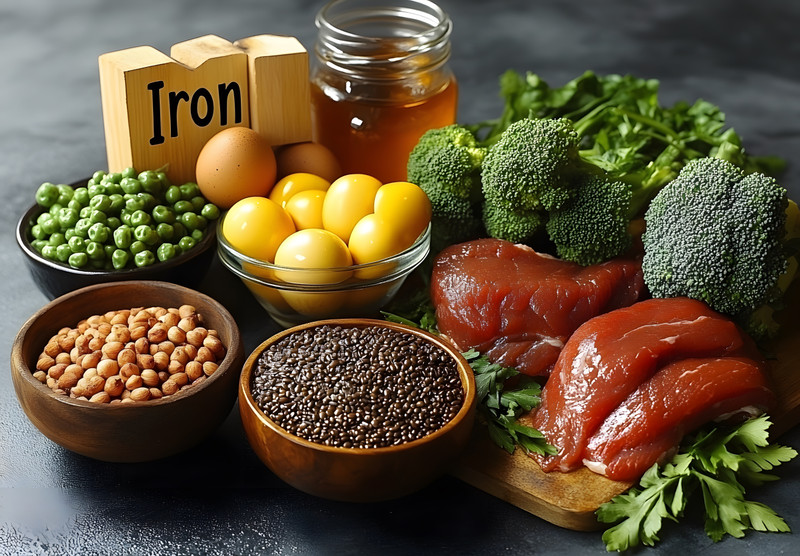Iron plays a crucial role in your overall health, yet it's one of the most common nutrient deficiencies in the world. This essential mineral helps carry oxygen through the bloodstream, supports energy production, and aids in immune function. When iron levels drop too low, your body — and especially your energy levels — can feel the impact quickly.
Understanding the signs of deficiency and how to prevent it can help you stay strong, energized, and resilient.
Why Your Body Needs Iron
Iron is vital for the formation of hemoglobin, a protein in red blood cells that transports oxygen from your lungs to the rest of your body. Without enough iron, your body struggles to deliver oxygen efficiently, which can leave you feeling tired, weak, and mentally foggy. Iron is also involved in muscle function, brain development, and maintaining a healthy immune system.
Signs of Iron Deficiency
Iron deficiency can be subtle at first, but symptoms often increase in severity over time. Common signs include:
-
Fatigue or general weakness
-
Pale or sallow skin
-
Shortness of breath during light activity
-
Dizziness or lightheadedness
-
Cold hands and feet
-
Headaches
-
Brittle nails or hair loss
-
Restless legs or difficulty concentrating
In more severe cases, iron-deficiency anemia can develop, which may require medical intervention and a more structured treatment plan.
Who’s Most at Risk?
Certain groups are more susceptible to low iron levels, including:
-
Women with heavy menstrual cycles
-
Pregnant or breastfeeding women
-
Children during growth spurts
-
Vegans and vegetarians
-
People with gastrointestinal conditions that affect absorption (like celiac or Crohn’s disease)
-
Athletes, due to increased demand and iron loss through sweat
How to Prevent Iron Deficiency
Prevention starts with a balanced diet. Iron comes in two forms:
-
Heme iron (from animal sources like red meat, poultry, and fish)
-
Non-heme iron (from plant sources like lentils, spinach, and fortified grains)
To boost absorption, pair iron-rich foods with vitamin C (like citrus fruits, bell peppers, or tomatoes) and avoid consuming iron with calcium-rich foods, coffee, or tea, which can interfere with uptake.
For individuals who struggle to meet their iron needs through diet alone, supplements can be an effective and gentle solution.
Recommended Supplement: Iron Glycinate by DC Labs
Iron Glycinate by DC Labs is a highly absorbable and well-tolerated form of iron, designed to support healthy red blood cell production and restore optimal iron levels — without the common digestive discomfort that comes with many traditional iron supplements.
Here’s why we recommend it:
-
Gentle on the stomach – Chelated glycinate form reduces the risk of constipation or nausea
-
High absorption – Designed for optimal bioavailability
-
Vegetarian-friendly and clean formula – Free from artificial additives and harsh fillers
-
Provides 28 mg of elemental iron per serving – Ideal for individuals with increased iron needs
If you're feeling drained or suspect you're low in iron, DC Labs Iron Glycinate is a smart and effective way to support your body’s energy and oxygen-carrying capacity.
Iron is too important to overlook. By learning the warning signs of deficiency and supporting your body with smart nutrition and supplementation, you can take proactive steps toward better energy, focus, and long-term health.
Explore more natural solutions and trusted supplements at EarthTurns.com.

